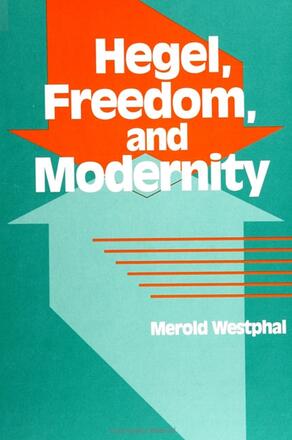
Hegel, Freedom, and Modernity
Alternative formats available from:
Description
This book studies the intersection of Hegel's political theory as developed in the Philosophy of Right with his philosophy of religion and his dialectical, holistic theory of knowledge. It explores both the methodological and theological dimensions of Hegel's politics by placing him in dialogue with such traditions as Hinduism, the Protestant Reformation, and the contemporary Religious Right, and with such individual thinkers as Husserl, Gadamer, Pannenberg, and Tillich.
The author shows that Hegel's philosophy outlines the dilemma of religion and society perhaps more clearly than any other modern thinker's perspective. Namely that a religiously based society tends to be sectarian, exclusive, and intolerant, while a fully secular society tends to lose the conditions which make community in any meaningful sense possible. Hegel's search for a nonsectarian spirituality of community poses the problem the contemporary world must solve if we are to uncover a humane society.
Merold Westphal is Professor of Philosophy at Fordham University. Former president of the Hegel Society of America, he is the author of History and Truth in Hegel's Phenomenology; God, Guilt, and Death: An Existential Phenomenology of Religion; and Kierkegaard's Critique of Religion and Society.
Reviews
"Merold Westphal is one of the most distinguished of contemporary commentators on Hegel. His work is replete with stimulating insights. He succeeds extraordinarily well in presenting the relevance of Hegel to a range of contemporary issues and thinkers, and thus the excitement of Hegel as a modern thinker. This is an exciting book. " — Paul Lakeland, Fairfield University
"Merold Westphal's vigorous interpretation of Hegel, bringing together religious, socio-cultural and epistemological concerns, challenges even those who are most critical of Hegel to think again. His understanding of Hegel is profound, and his capacity as a critical expositor marks him as the Hegel scholar of the coming decades. " — Robert L. Perkins, Stetson University